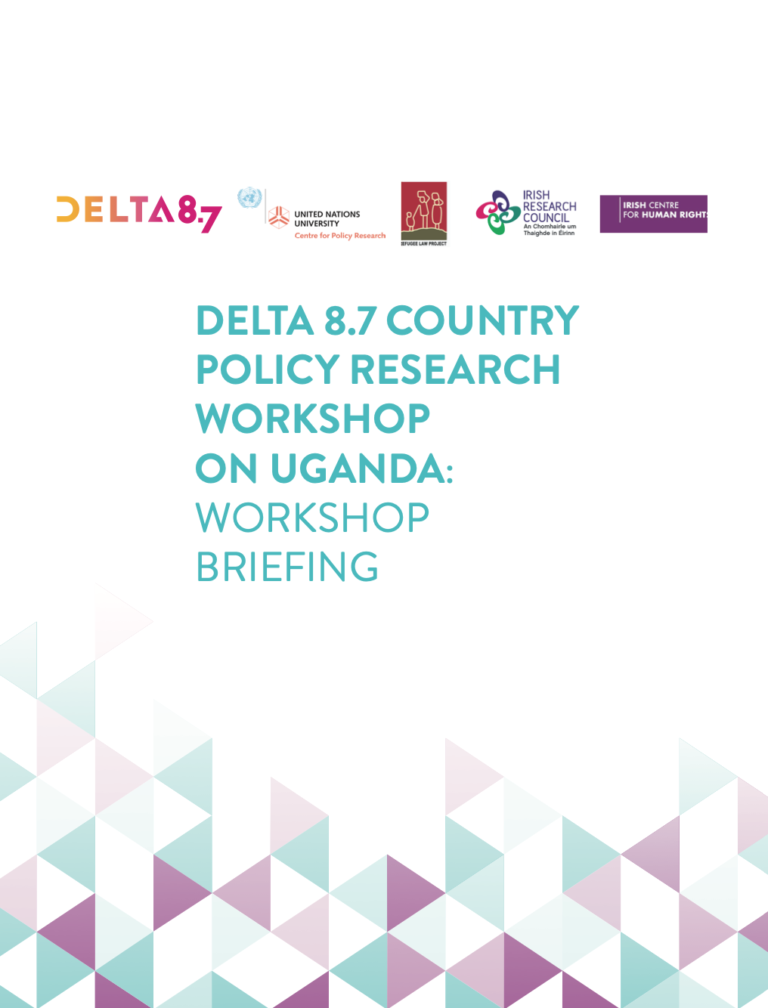On 9-10 February 2022, Delta 8.7 convened a policy research workshop in partnership with the Refugee Law Project, Makerere University School of Law and the Irish Centre for Human Rights at the School of Law, National University of Ireland – Galway. This workshop was held to facilitate exchange on the most effective measures to prevent, identify and remediate trafficking of persons in refugee and asylum-seeking populations in Uganda.
In preparation for the workshop, interviews were conducted with all workshop participants and other selected experts to identify key policy areas for the discussion. Over the course of the workshop itself, participants in four sessions considered these policy areas and responded to questions identified in the pre-workshop interviews. These policy areas were:
- Regional and continental frameworks to manage trafficking in people on the move
- Trafficking response through local lenses for identification and prevention
- International humanitarian and human rights frameworks
- Identification and prevention at the national level
What follows is a summary of the research needs, best practices and areas in which policy might be better instrumentalized to effectively address human trafficking in the context of refugee and asylum-seeking populations in Uganda. These notes draw upon the workshop discussions as well as the pre-workshop interviews. In the summary of best practices and strengthening policy or implementation, the following key themes have been identified:
- International, regional and national frameworks for action
- Partnerships, collaboration and capacity-building
- Identification and data

